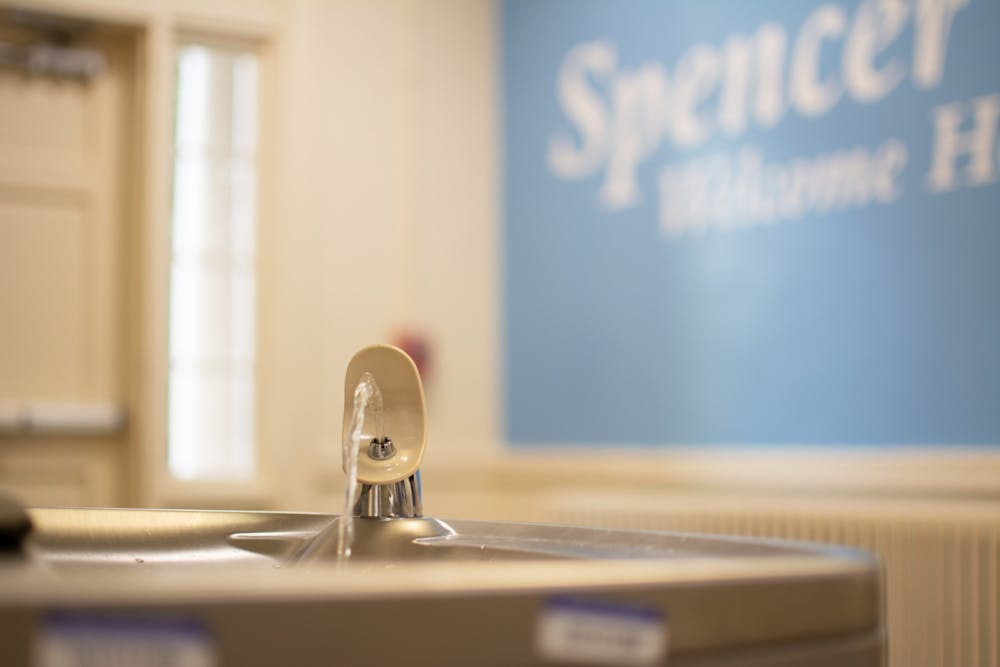She said she renewed her room based on communications with Carolina Housing and Spencer residents last year. She thought they were going to fix the issue before move-in. Then, she learned that all in-room sinks would be turned off for the foreseeable future.
According to the Environmental Protection Agency, public water systems can not surpass 15 parts per billion of lead before action is taken to improve the water quality.
The University has remediated 272 of the 435 drinking water fixtures that were contaminated, UNC Media Relations said in an email statement. This means about 63 percent of its remediation process is complete.
“It feels like nobody is really wanting to fix the problem, just kind of gloss over it,” Edmondson said.
Binny said she hoped to see more improvements to the filtration and testing process for students moving into Spencer.
“They could have bought water filters for the showers,” she said. “They did actually put a filter on the sinks, but it was just one of the sinks.”
Kameron Thomas, a junior at UNC, also renewed his housing for this semester in Spencer, but he is unsure if he will stay in the dorm for the duration of the school year.
He warned incoming students about the obstacles they may face by opting to live on campus.
“Do your best to not live on campus. You're always going to have some sort of a problem like this,” he said. “Even if it's not a water-related issue, it's going to be something. There's always something falling apart in these old buildings.”
Thomas also said he had to walk to other dorms and buildings on-campus to fill up his water bottle or wash his dishes when the water was initially shut off.
“It's just kind of inconvenient because you have to go somewhere now to do anything,” he said.
Though Carolina Housing said they recently added additional filters to the bathroom sinks, Edmondson said she has yet to see clean water stations for residents to utilize. She urged students considering on-campus housing to stay up-to-date with lead testing in their buildings.
To get the day's news and headlines in your inbox each morning, sign up for our email newsletters.
“Make sure you're reading your emails, and make sure you're in contact with housing. If you have heard about an issue in a residence hall, be mindful, and do not make that your first option,” she said.
Edmonson also said she hopes to see more transparency from Carolina Housing by communicating a plan of action for testing and maintenance throughout the semester.
“For putting students in a residence hall that has had lead problems, you would think they would want to let the residents know [about testing] for some kind of peace of mind,” she said.
Carolina Housing did not respond to The Daily Tar Heel’s request for an interview before the time of publication.
If you or someone else may have been exposed to unhealthy amounts of lead, UNC urges students to contact UNC Campus Health Service or visit their website.
@dailytarheel | university@dailytarheel.com




